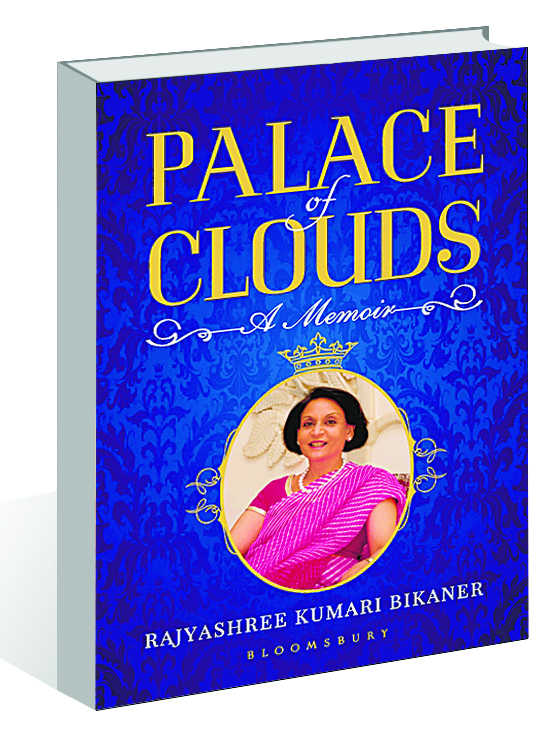
Palace of Clouds: A Memoir by Rajyashree Kumari Bikaner. Bloomsbury. Pages 376. Rs 699 .
Sukhmani Kaur
The memoir by Rajyashree Kumari, daughter of Dr Karni Singh, Maharaja of Bikaner, Palace of Clouds delves into the life and times of five generations of the Bikaner royal family.
This is the third book by Rajyashree. It explores the political legacy of Bikaner’s rulers before and after Independence. While the narrative interests the reader, it also throws up uncomfortable questions.
The author's description of the Great Indian Mutiny of 1857 rankles. She calls it "the terrible Indian Mutiny" which would have had "catastrophic consequences for the British had it not been for the Maharaja's help."
Bikaner, the sixth largest princely state, was the first to accede to the Dominion of India in August 1947 and Maharaja Sadul Singh was hailed for his 'patriotic cooperation'. But then, he had no option. The state could not have survived on its own in the absence of the British.
The author's recollection of events gives us a glimpse of a world disconnected with and contemptuous of the Indian masses. It is an indulgent world replete with countless world tours with large retinues, African safaris, lavish ballroom parties and hunting jaunts.
All that became part of a glorified past with the abolition of Privy Purses and the acquisition of properties belonging to the princes in Rajasthan. The book describes the princess's formative years in the 1960s; a time marked by significant changes in the lifestyle of the royals, particularly women, from medieval to cosmopolitan.
Having long said goodbye to sati and purdah system, the House of Bikaner under Dr Karni Singh adopted a more modern approach. Rajyashree Kumari and her siblings were the first in the family to receive a modern education. She became an avid shooter and won the National Air Rifle Championship at the age of 7. In 1969, when she was 16, she won the prestigious Arjuna Award.
While the arrogance bred by privilege was inevitable, sports had a grounding effect.
The memoir also brings out her father's role in shaping her personality as an independent woman way ahead of her times.
The desire for independence culminated in her decision to marry a Londoner of Rajput-origin. It also gave her an opportunity to be closer to the British throne, which she never stopped idolising.
Though the book has interesting anecdotes to offer, there is a lack of association with fellow citizens. The author tries to relive the old-world charm, which may interest readers seeking a glimpse into the maharajas.



























